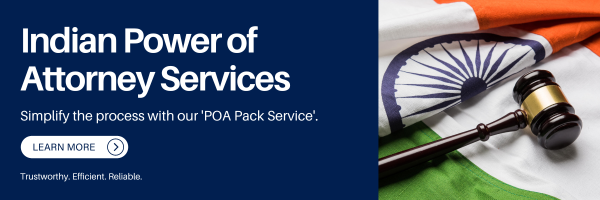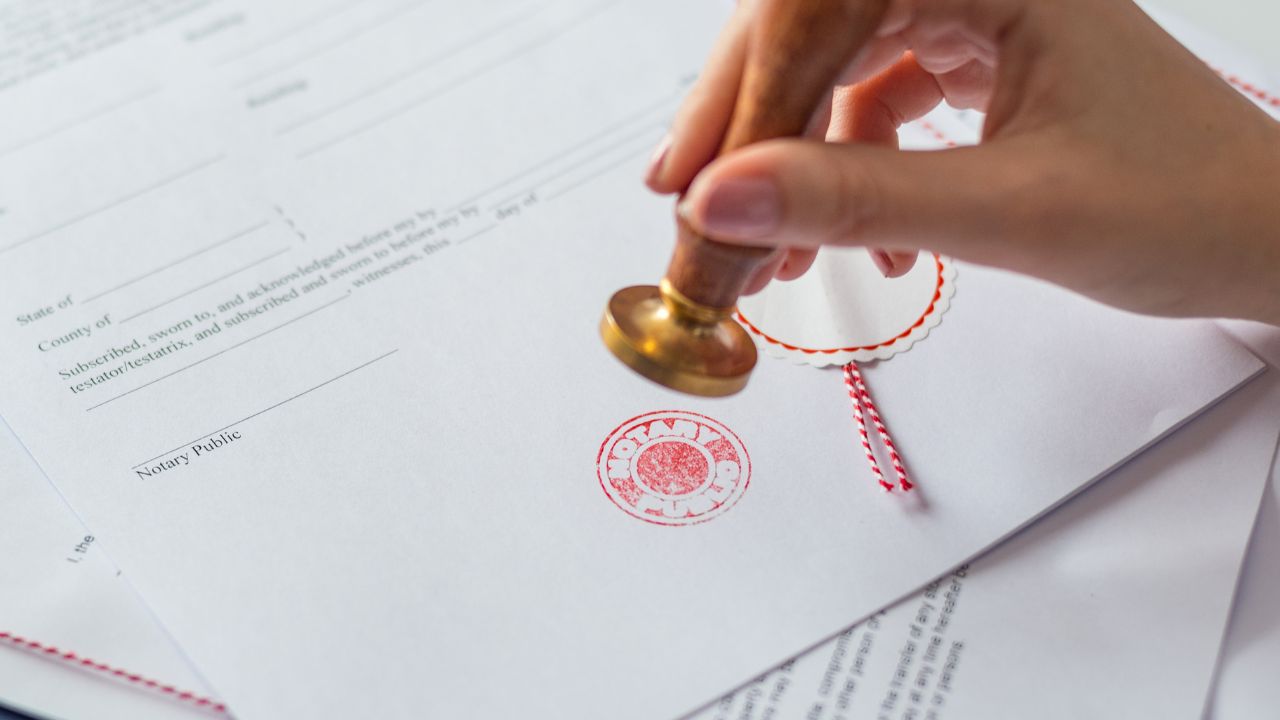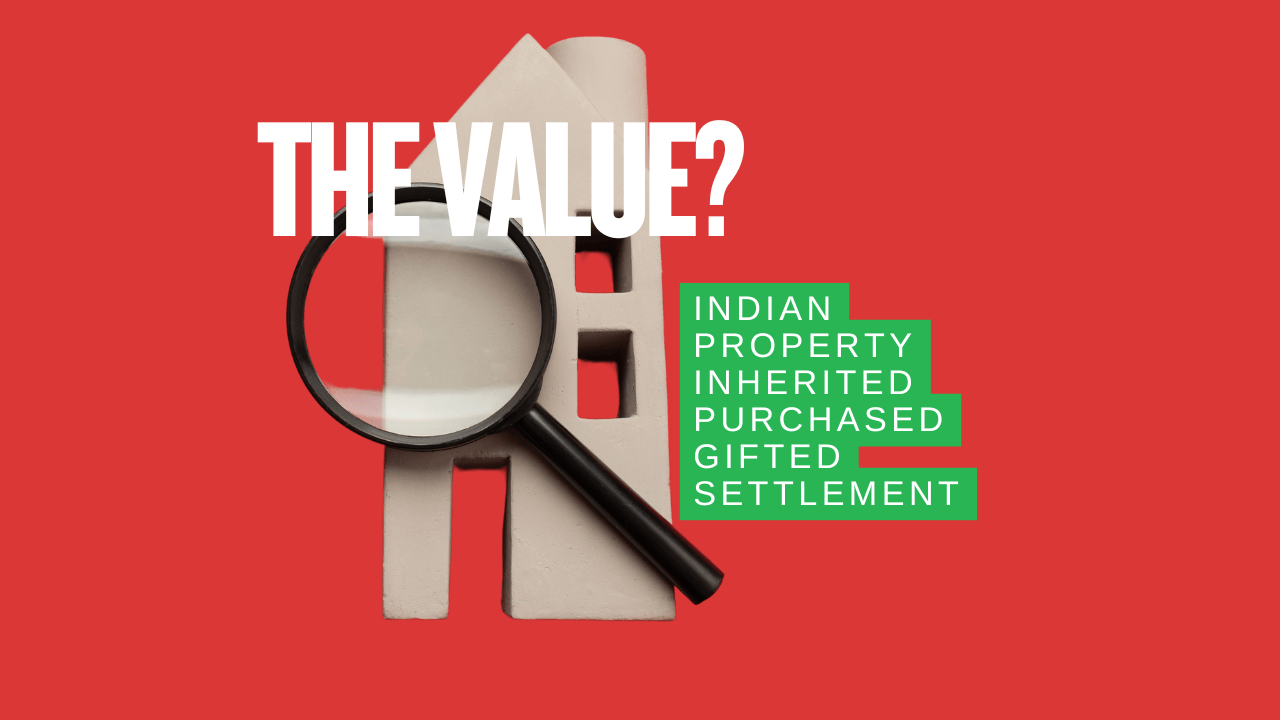A power of attorney may be cancelled for many reasons, most often being the power is no longer needed or because you’re not happy with your attorney. Usually, a deed of revocation should be used when there is no expiry date of the original power or the power is to end before the expiry date. This post will explore how to cancel an Indian power of attorney.
A power of attorney (PoA) is a legal instrument granted to a person (known as the attorney) which gives him or her the authority to make decisions for the principal on some issues. It enables that person to act as an agent for the principal. It establishes a principal-agent relationship between the two through a legally binding contract under Indian Law. NRIs based in the UK often need to create power of attorneys to be used in India to reduce the need for travelling or to save on time. Sending a valid power of attorney from the UK to India involves a specified legal process. Otherwise, a power of attorney will not be accepted in India. Similarly, sending a valid revocation of a power of attorney means that the legal document must undergo certain legal formalities.
Revoking an Indian power of attorney from the UK successfully requires a formal legal procedure followed under Indian Law, such as providing proper notice to your attorney. Failure to follow this procedure may result in the attorney’s action still being valid thus resulting in a complicated legal situation.
What is a deed of revocation?
A deed of revocation is a legally binding document that allows you to cancel a power of attorney you previously gave to someone. You can revoke a power of attorney for any reason.
Does an NRI need to cancel their power of attorney?
NRIs need this revocation of power of attorney to ensure the NRI power of attorney has been formally and legally revoked. The power of attorney cannot be used anymore under Indian Law.
When can an Indian power of attorney be cancelled?
An Indian power of attorney can be cancelled at any time, as long as the grantor or principal still has mental capacity. Even though no definitive law governs the same, the procedure for such revocation has been drawn from the Indian Contract Act 1872. Reasons for revoking an Indian power of attorney may include the following:
- The tasks mentioned in the power of attorney are complete;
- The attorney has become mentally incapacitated;
- The attorney has failed to carry out the duties assigned properly or has mismanaged his/her duties;
- Either the principal or agent has become insolvent;
- In case of breach of contract, the attorney has acted outside the scope of the powers granted through the Indian power of attorney.

What’s included in a deed for revocation?
A revocation of an NRI power of attorney covers:
- The situation where you have previously appointed an attorney and now wish to revoke or cancel that appointment because you are not happy with your attorney; or
- The situation where you have previously appointed an attorney and now wish to revoke or cancel that appointment because you no longer need the power.
Who can cancel an Indian power of attorney?
Only a grantor who is not mentally incapacitated can revoke a power of attorney.
How can an NRI cancel an Indian power of attorney from the UK?
The grantor should complete the revocation of the power of attorney legalisation process both here in the UK and in India. The attorney must be notified that their ability to act has been revoked. During notification, the grantor must demand the return of the original power of attorney to them.
Do I need to give notice to my attorney?
Yes, the attorney must have notice of this revocation to end the power. The notice should be given in writing and it is a good idea to get the attorney to sign a copy of the revocation to confirm that they have had notice. If they are not aware that the power has been revoked, they can continue to exercise their powers and their actions may well be valid.
What is automatic revocation?
An automatic revocation is where the power of attorney becomes void automatically, without the need for revocation, for example, the power of attorney contains a clause specifying that the power of attorney shall be invalid after a particular date.
A power of attorney is automatically cancelled if there are no replacement attorneys and when:
- The attorney refuses to accept the appointment;
- The attorney ceases to have the capacity to exercise the power;
- The attorney dies and there is no replacement;
- The attorney is removed by order of the Court.
What happens if the attorney dies?
The Indian power of attorney will end if the attorney dies and there is no replacement.
What happens to an Indian power of attorney when the grantor dies?
When the person giving the power of attorney dies, the Indian power of attorney ends automatically. After death, the donor’s affairs will be looked after by the executors or personal representatives, not the attorney.
Related Posts:
- Power of Attorney Pack Service
- Sending a Power of Attorney from the UK to India
- The Real Cost of of an NRI Power of Attorney
- Pros and Cons of an NRI General Power of Attorney
- Power of Attorney Guide for Non-Resident Indians
Frequently asked questions
An NRI (Non-Resident Indian) can cancel (or revoke) a power of attorney (POA) anytime through a revocation deed.
Generally, a POA is registered and thus a revocation deed is also required to be registered to cancel any rights given to the POA holder. In case if a POA is not registered, a written notice to cancel the POA should be sufficient.
Instances when POA can be revoked or cancelled:
A Special or Specific POA;
In case of breach of contract or abuse of powers;
By mutual consent of both parties;
In case any of the parties want to give up their rights.






